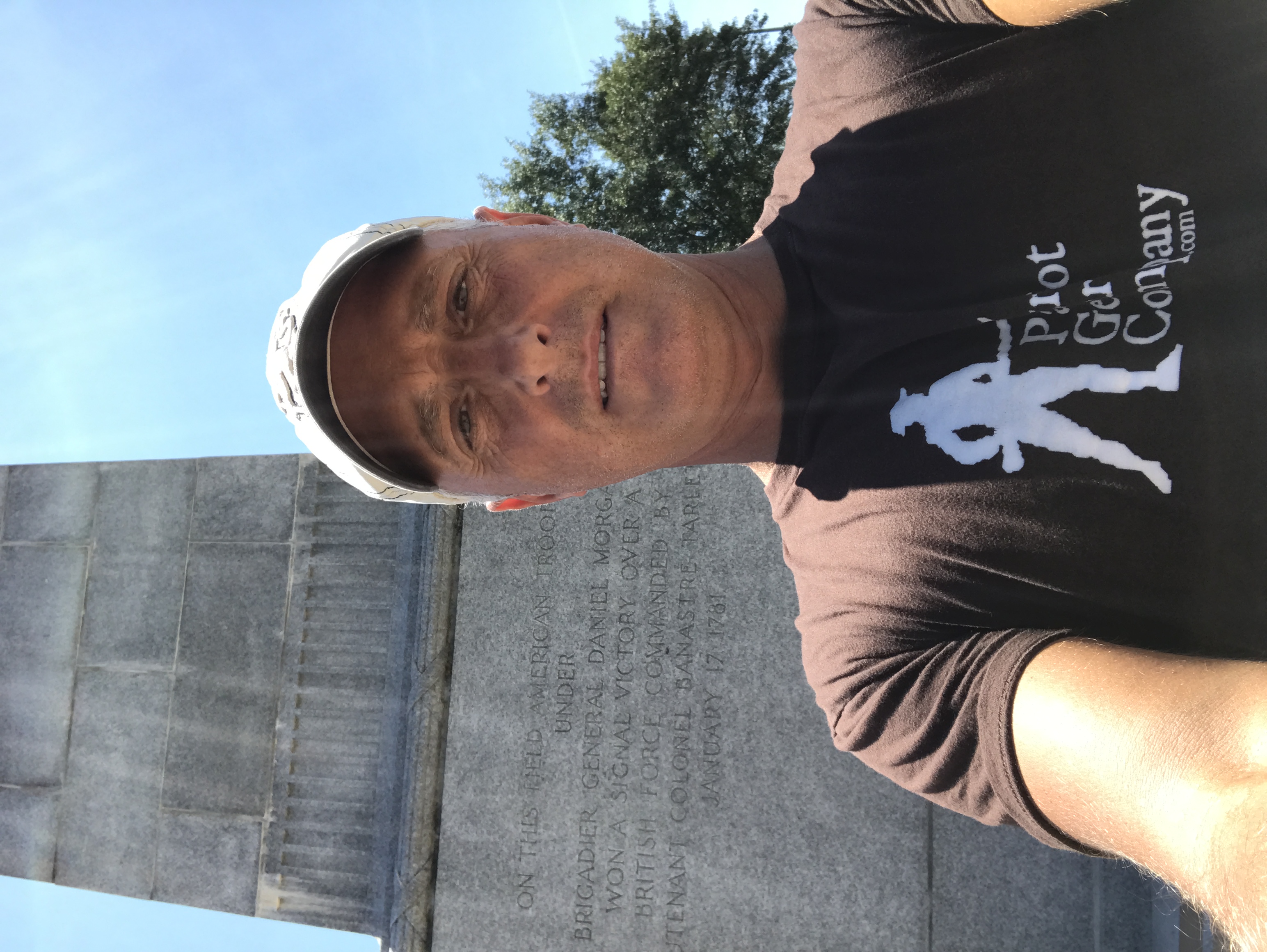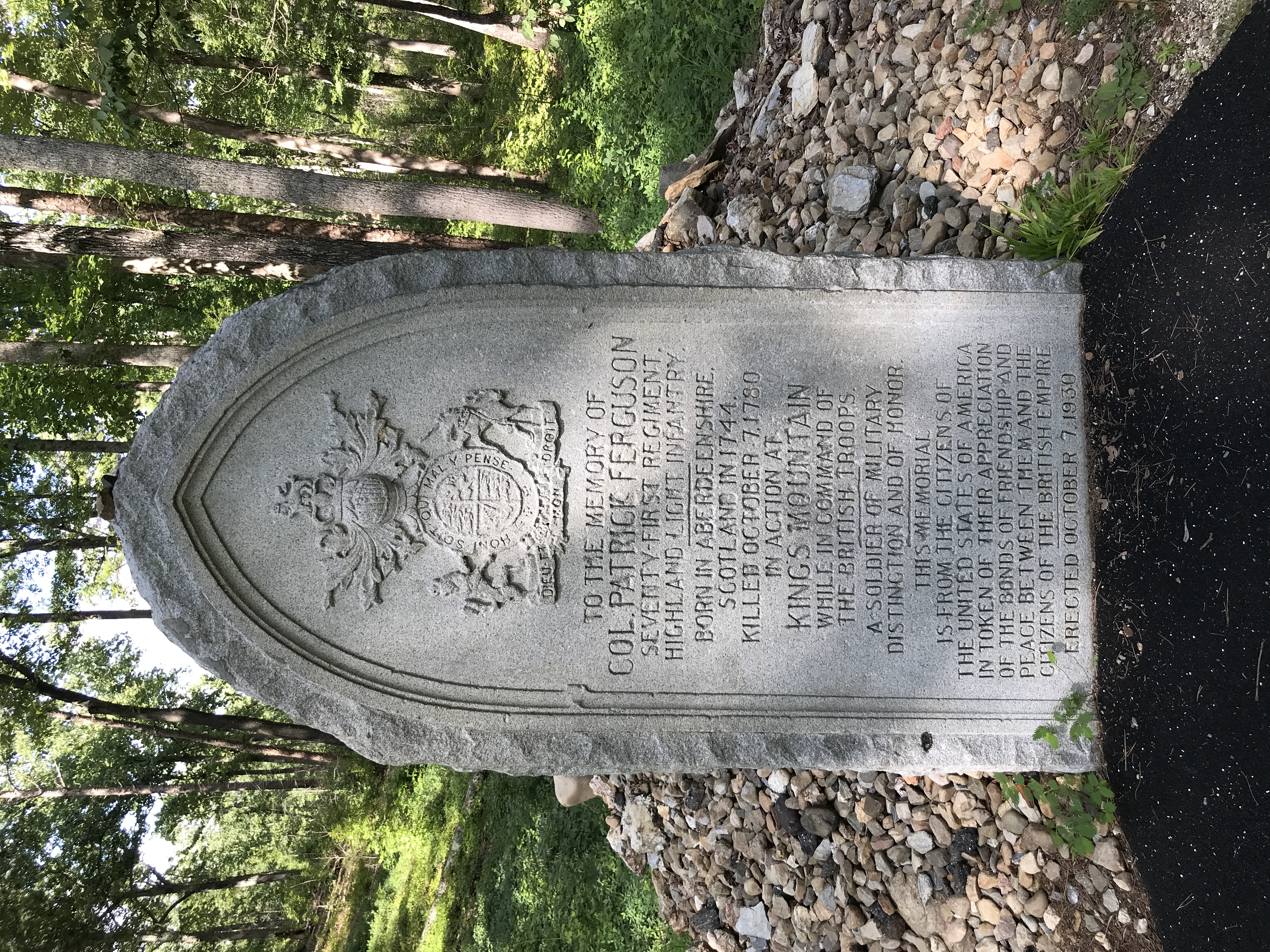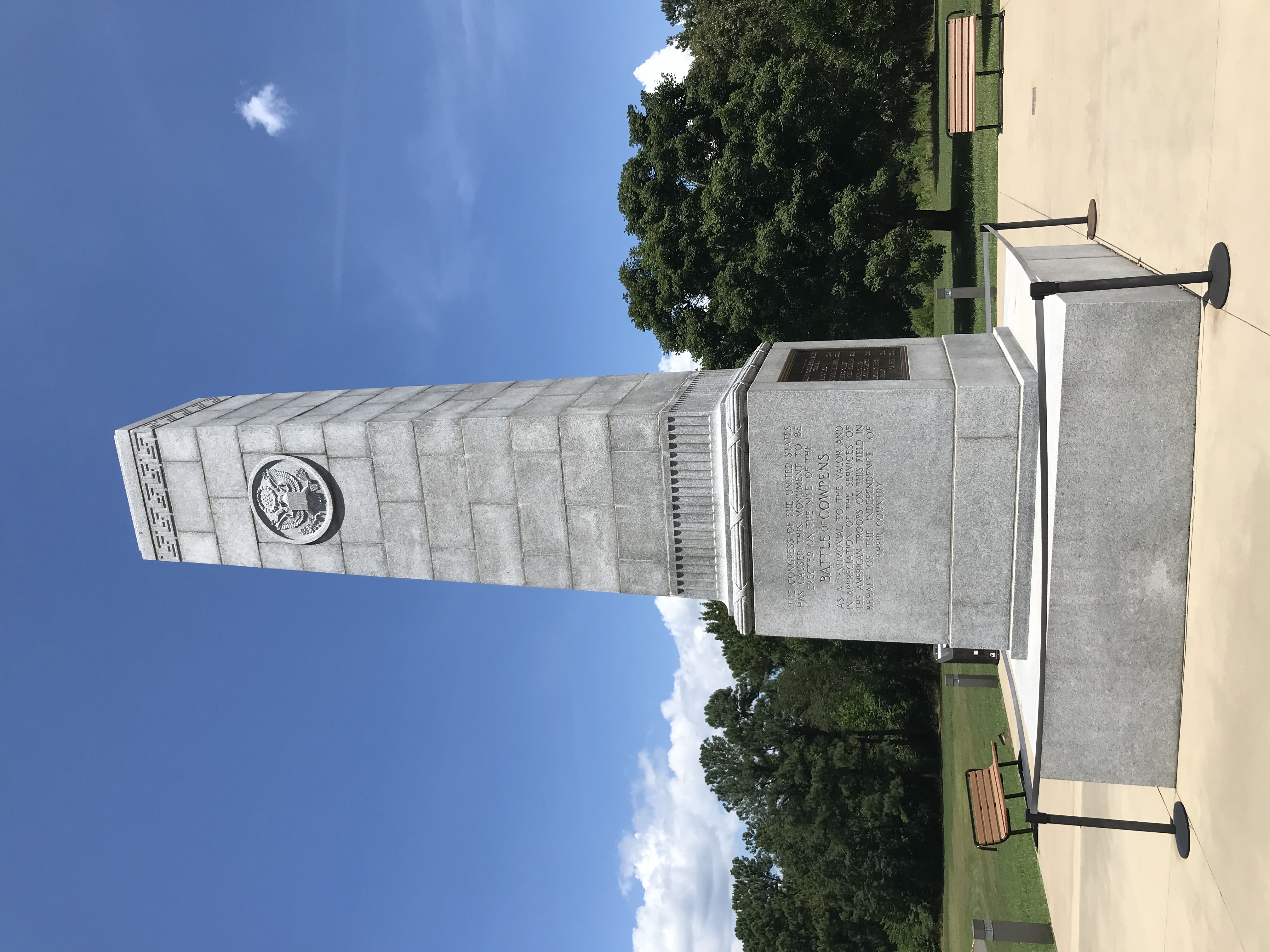Posted by Scott Miller on 10th May 2023
Patriot Gear Company Visits Kings Mountain & Cowpens National Battlefields
Very late in putting up this post, but we had to tell you about a few under appreciated National Battlefields tucked away in northern South Carolina. Cowpens and Kings Mountain battlefields are located within less than an hour drive from each other. These battles would prove to be turning points in the war and have a profound impact on the outcome of the American Revolution.
You can buy William Ranney's famous illustration of the Battle of Cowpens here.
In the summer of 2022, Patriot Gear Company visited the battlefields to walk the hallowed grounds of these two battles. The Battle of Cowpens was depicted in the final Battle of the fantastic film "The Patriot" featuring Mel Gibson. If you have not seen that movie, it is a must see!

In the year 1780, and the American forces, led by General Daniel Morgan, were engaged in a war against the powerful British army. The British had been successful in their campaign, capturing Charleston and several strategic locations in the South. However, the tide was about to turn.
In the first of these battles, the Battle of Kings Mountain, a ragtag group of American militia men, known as the Overmountain Men, gathered together to defend their homes and the cause of independence. Commanded by Colonel William Campbell, they were determined to halt the advance of Major Patrick Ferguson and his Loyalist forces.
On October 7, 1780, the two forces clashed on Kings Mountain, a prominent hill in South Carolina. The Overmountain Men fought with fierce determination, utilizing their knowledge of the rough terrain to their advantage. They encircled Ferguson's troops and launched a relentless assault. Wave after wave, the Americans pressed forward, firing their muskets and brandishing their rifles.

Despite being outnumbered, the patriots' determination and their knowledge of the land proved to be decisive. Ferguson's forces were overwhelmed, and he himself fell in battle. The Battle of Kings Mountain was a resounding victory for the American forces, inspiring hope and reinvigorating the spirit of independence in the hearts of the people.

Buoyed by their success at Kings Mountain, the American forces continued their campaign against the British. General Nathanael Greene, a brilliant strategist, devised a plan to engage the British army under the command of Lieutenant Colonel Banastre Tarleton. The location chosen for the next battle was Cowpens, a vast grazing land in South Carolina.
On January 17, 1781, the Battle of Cowpens commenced. General Morgan, with the support of Colonel Andrew Pickens and Colonel William Washington, positioned his troops in a carefully planned formation. He placed sharpshooters at the front, followed by militiamen and Continental Army soldiers.
As Tarleton's forces charged forward, the American sharpshooters unleashed a hail of accurate gunfire, causing confusion and panic among the British ranks. The militia, initially appearing to retreat, drew the British deeper into the battlefield. At a crucial moment, the American militia abruptly turned and unleashed a devastating volley, catching the British by surprise.

Meanwhile, the Continental Army soldiers, led by Lieutenant Colonel John Eager Howard, held their ground and engaged the enemy head-on. The American cavalry, under Colonel Washington, struck the British flank, causing further chaos and disarray. The Battle of Cowpens turned into a decisive victory for the Americans, as the British were unable to regroup or mount a counterattack.
The battles of Kings Mountain and Cowpens were significant turning points in the American Revolution. They boosted the morale of the American forces, disrupted British plans in the South, and convinced many local residents to join the cause of independence. The victories also drew attention from European powers like France, who saw the potential for the Americans to win the war.
These battles demonstrated the resourcefulness and determination of the American forces and showcased the brilliance of their leaders. The victories at Kings Mountain and Cowpens set the stage for subsequent American successes and ultimately contributed to the final victory in the American Revolutionary War, securing independence for the United States of America.
